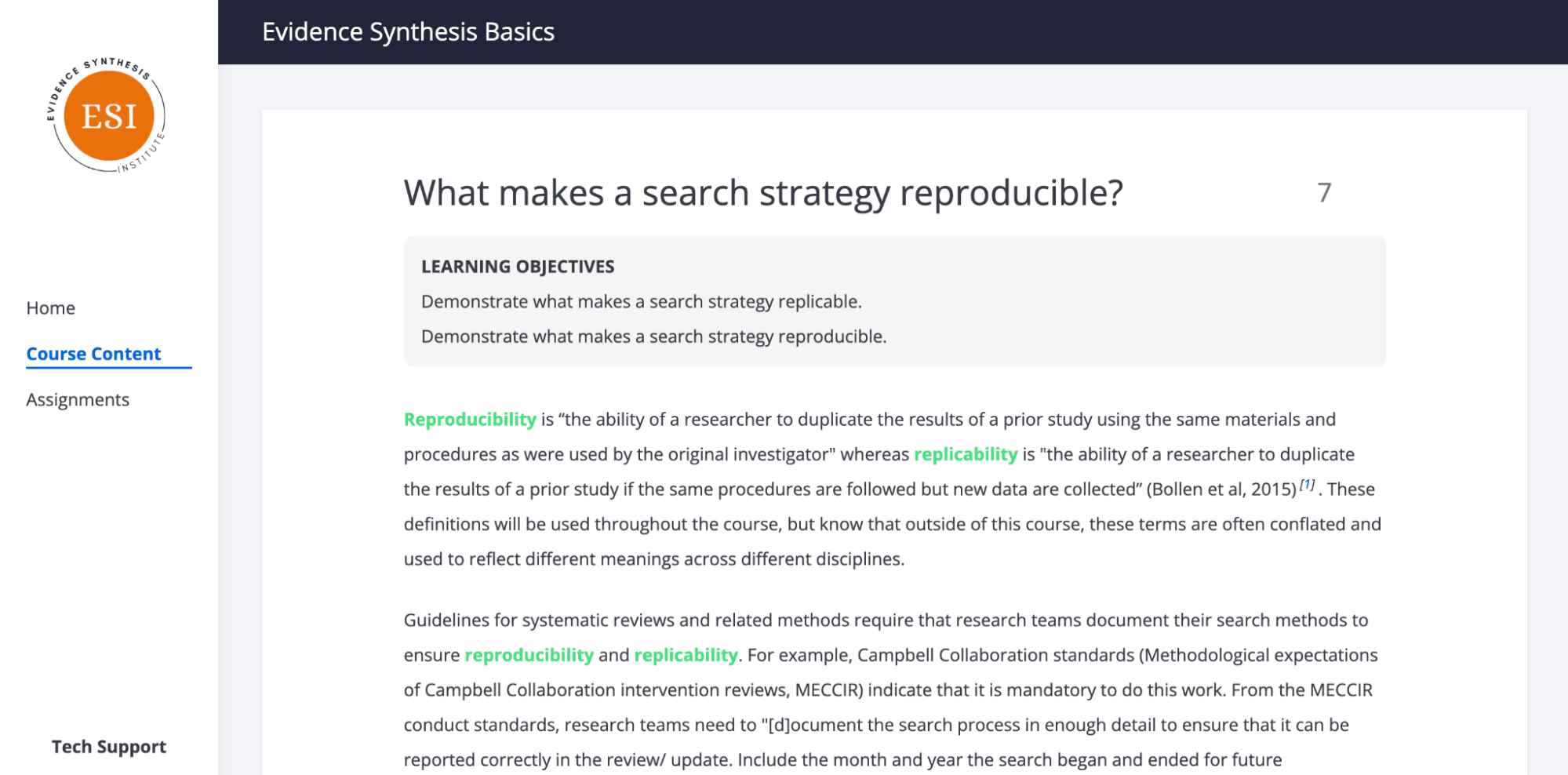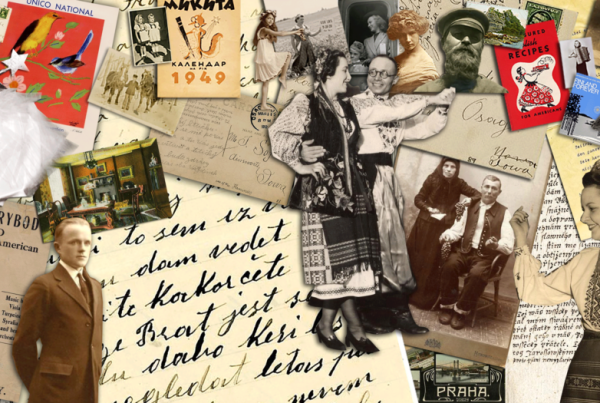A new online course, “Evidence Synthesis for Librarians and Information Specialists,” is now available to librarians, information specialists, and learners everywhere.
The course was created by the Evidence Synthesis Institute (ESI), a partnership between the University of Minnesota Libraries, Cornell University Libraries, and Carnegie Mellon University Libraries. Since its inception in 2020, ESI has trained over 450 librarians through its synchronous, biannual four-day workshop.
Because ESI regularly receives more applicants than it can accommodate in a synchronous format, the Institute is now offering a self-paced option, said Megan Kocher, Science & Evidence Synthesis Librarian (Agriculture) at the University of Minnesota Libraries and ESI Principal Investigator.
“Evidence Synthesis for Librarians and Information Specialists” brings the core components of ESI to an open online course, providing information access to an even wider audience, Kocher said. The online option is also useful for those who cannot attend ESI due to scheduling or time-zone challenges.
The course contains 15 modules guiding students through the evidence synthesis process — from an introduction to review types through writing a methods section for publication, with an emphasis on developing and using systematic search strategies.
“Getting started with evidence synthesis can be daunting, but this course takes a complex topic and makes it manageable,” says Matt Kibbee, Evidence Synthesis Research Librarian at Cornell University Library. “Our hope is that librarians will feel empowered to get involved in these projects and make a meaningful impact in this exciting area of research.”
The course is free to access on the Open Learning Initiative website. It takes approximately seven to 14 hours to complete. By the end of the course, learners can expect to be able to:
- Utilize the basics of evidence synthesis when performing research or collaborating with researchers.
- Express the value of evidence synthesis principles in performing research.
- Strengthen their skills as library professionals when collaborating with a variety of stakeholders, such as learners and researchers.
–
About the Evidence Synthesis Institute
The Evidence Synthesis Institute (ESI) is a partnership between University of Minnesota Libraries, Cornell University Libraries, and Carnegie Mellon University Libraries, created with funding from the Institute of Museum and Library Services (IMLS) (RE-246347-OLS-20).
ESI was created to fill a training gap and to build capacity to support evidence synthesis in disciplines outside the health sciences (e.g. social sciences, agriculture, and engineering), as well as to create a community of librarians engaged in this work. In its original format, ESI is a biannual synchronous workshop that takes place in a virtual environment over the course of four days.
Course instructors and affiliations
- Megan Kocher, Science & Evidence Synthesis Librarian (Agriculture), University of Minnesota Libraries (PI)
- Amy Riegelman, Social Sciences & Evidence Synthesis Librarian, University of Minnesota Libraries (Co-PI)
- Matt Kibbee, Evidence Synthesis Coordinator, Cornell University Library
- Sarah Young, Social Sciences Librarian and Director of the Evidence Synthesis Program, Carnegie Mellon University Libraries
- Molly Bostrom, Biology Librarian, University of Minnesota Libraries
- Scott Marsalis, Social Sciences Librarian, University of Minnesota Libraries
- Zahra Premji, Health Research Librarian, University of Victoria
- Jim Morris-Knower, Research and Evidence Synthesis LIbrarian, Albert R. Mann Library, Cornell University




